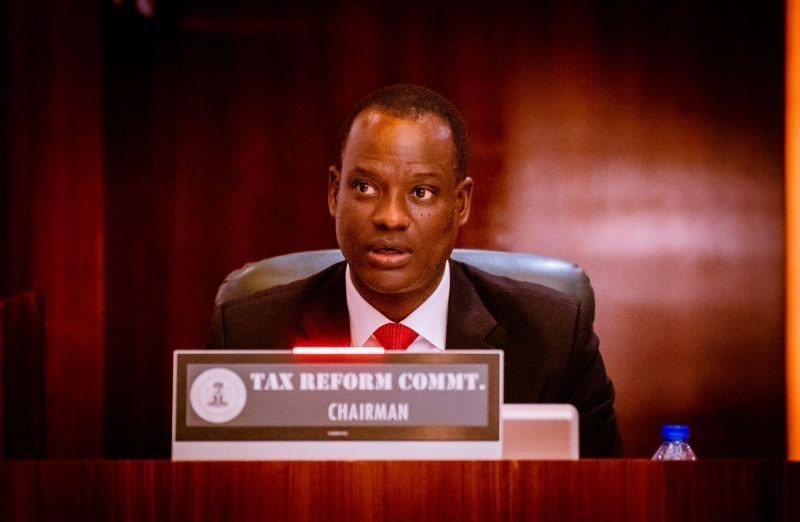Paragraph 1: Nigeria’s Tax Reforms and the Readiness of the Revenue Service
Nigeria is on the cusp of significant tax reforms slated for implementation in January 2026. A central figure in this process, Taiwo Oyedele, Chairman of the Presidential Fiscal Policy and Tax Reforms Committee, has expressed confidence in the preparedness of the Nigeria Revenue Service (formerly the Federal Inland Revenue Service) for the upcoming changes. Oyedele emphasized the Revenue Service’s proactive engagement and commitment to the reforms, suggesting a high degree of readiness for the January launch. President Bola Tinubu’s endorsement of the new tax acts underscores the government’s commitment to these reforms. The transition period until 2026 is designed to facilitate public awareness campaigns and meticulous planning to ensure a smooth implementation process.
Paragraph 2: Balancing Revenue Generation with Protection for Vulnerable Populations
A key aspect of the tax reforms involves balancing revenue generation with protecting vulnerable populations and small businesses. Oyedele stressed that revenue generation should not come at the expense of the most vulnerable segments of society. He argued against taxing poverty, emphasizing the importance of safeguarding low-income earners and small and medium-scale enterprises (SMEs). The reforms aim to stimulate economic growth, prioritize citizen well-being, and drive efficiency, leading to sustainable revenue generation. The ultimate goal is to empower political leaders to utilize these resources effectively for the benefit of the people.
Paragraph 3: Addressing Multiple Taxation and Constitutional Constraints
The issue of multiple taxation is deeply rooted in Nigeria’s Constitution, posing a challenge to reform efforts. The Constitution grants local governments the authority to impose various taxes, some of which are considered outdated and unsuitable for the current economic landscape. Oyedele highlighted the committee’s collaboration with the National Assembly to propose constitutional amendments to address this issue. The objective is to streamline tax collection at the local government level, reducing the burden on citizens while simultaneously improving revenue collection through the closure of evasion and leakage loopholes.
Paragraph 4: The NESG’s Perspective on Economic Reforms and Social Progress
The Nigerian Economy Summit Group (NESG) hosted a forum to discuss the theme of translating economic gains into social progress. Mr. Olaniyi Yusuf, Chairman of the NESG, acknowledged the government’s efforts to create a business-friendly environment while emphasizing the need for further action. He outlined three key priorities: supporting business continuity and growth, boosting productivity and job creation, and strengthening social protection and household support. Yusuf stressed the necessity of reforms, however painful, and urged the private sector to adapt, invest strategically, and partner with the government to shape pro-business and pro-people policies.
Paragraph 5: Economic Growth, Inflation, and Private Sector Credit Constraints
Dr. Olusegun Omisakin, Chief Economist and Director of Research & Development at NESG, presented a report highlighting economic growth while acknowledging areas for improvement. He noted the relatively weak growth rate of around 3-3.1%, suggesting the need for accelerated momentum. Omisakin also addressed the interplay between inflation control and credit constraints. While the Central Bank of Nigeria’s efforts to control inflation have shown positive results, they have also led to a decline in private sector credit. This necessitates a balanced approach to ensure that stability strategies do not stifle growth drivers. The NESG projected a GDP growth of 3.8% for 2025, with inflation expected to close the year at 24.5%.
Paragraph 6: Panel Discussion and Closing Remarks: Focus on Sustainable Financing
A panel discussion featuring various stakeholders, including Oyedele and representatives from prominent businesses and organizations, emphasized the importance of sustaining the current reforms and easing access to credit financing for the private sector. Dr. Tayo Aduloju, CEO of NESG, concluded the forum by highlighting the critical need for financial resources to drive development, particularly given the challenges faced by businesses of all sizes in accessing adequate credit. The discussion reiterated the crucial link between economic stabilization and capacity building for households, individuals, and businesses. Access to finance remains a significant challenge and a focal point for future discussions.


